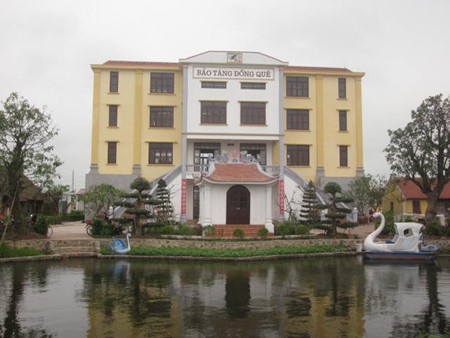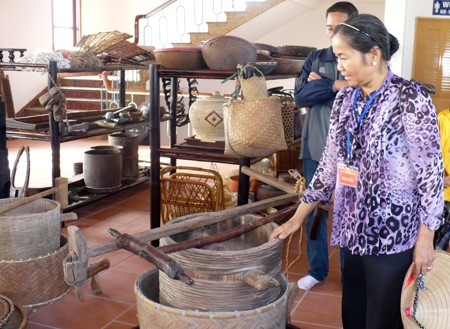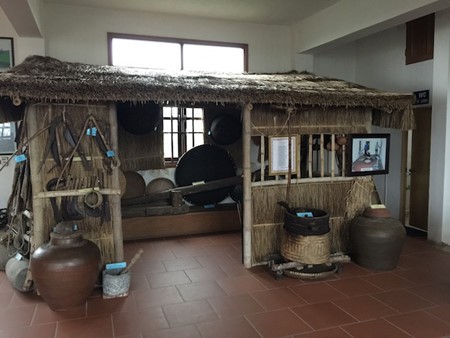(VOVworld)- Dong Que (Countryside) museum in Gia Thinh commune, Giao Thuy district, Nam Dinh province is a rare case because most of museums in Vietnam are located in major cities. Dong Que, which reflects the lives of people in the Red River Delta, has become a popular destination. It was built by war veteran Major General Hoang Kien.

Photo: suckhoedoisong.com |
The Dong Que Museum is about 40 km from Nam Dinh city. Surrounded by vast rice fields, the museum commemorates the lives of local farmers and the Red River Delta. At the gate of the museum is a display of farming and fishing tools and a row of rose mallows on either side. Around the museum are gardens with shades and fruit trees common in the Red River Delta. There are replicas of the traditional houses of different classes of people: landlords, middle-class farmers, and poor farmers. Tran Thi Hue is a guide at the museum: “Each region has its own characteristics. These are replicas of houses in the Giao Thuy region. They are slightly different from other northern houses. This landlord’s house is not as big as a typical one in Ha Nam province because this was a newer region and landlords were poorer than in other provinces”.

Photo: danviet.com |
In the center of the museum is a 4-storey house where objects typical of rural Vietnam are on display. This house typifies modern houses in rural Vietnam. According to Hue, the first floor of the house contains items that belonged to the museum’s founder and some war memorabilia. On the third floor is an open warehouse of of bronze, chinaware, and rattan products. But the second floor is the main focus of the museum: “The second floor is the main exhibition hall of the museum. Its main theme is rice growing in the Red River Delta. Items exhibited here are mostly rice farming tools. They include tools for ploughing, tending, harvesting and preserving. Local life is clearly reflected in the replicated kitchen”.

Photo: suckhoedoisong.com |
The museum reminds visitors of the difficult past in rural Vietnam while helping younger visitors learn more about rural Vietnam. Visitors, especially children, are encouraged to try some daily activities of rural Vietnam, like making cakes, planting vegetables, fishing, and grinding rice. Nguyen Van Tho is a farmer in Gia Thinh commune: “I think the museum helps the younger generation learn about rice mills and other farming tools. Pupils from secondary and upper secondary schools are very interested in these items”.
The Dong Que museum represents the soul, life, and working spirit of generations of Vietnamese people, linking the past and present.